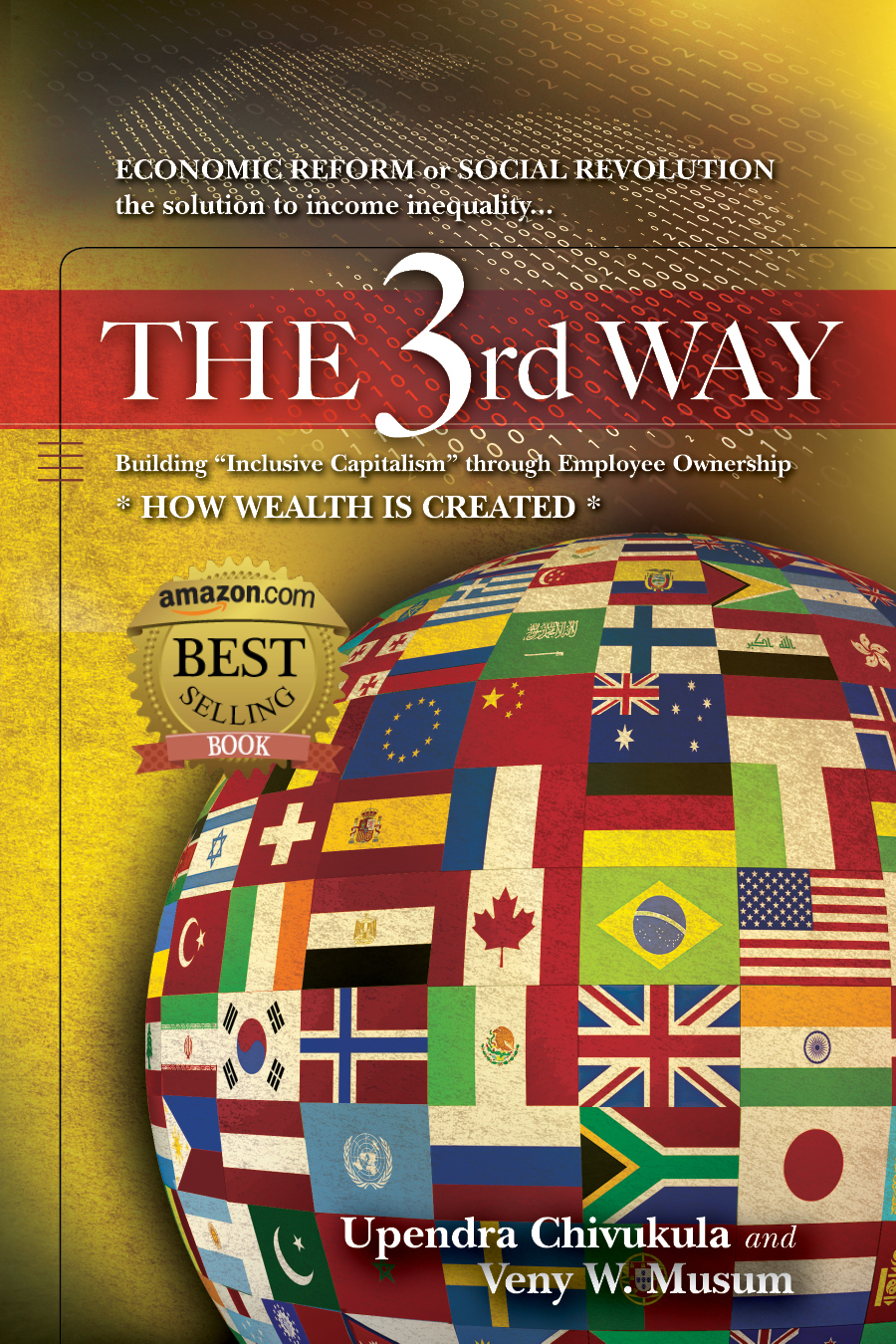Jan 20, 2015 7:30 AM EST
By Peter R. Orszag
Bloombergview.com/articles/2015-01-20
Here’s a good idea that I’d like to see prominent in President Barack Obama’s State of the Union speech tonight: shared capitalism. That is, stock-ownership plans or simple profit-sharing schemes for corporate employees. These plans have been shown to effectively align workers’ incentives with those of the company’s equity owners, but they have not received much attention lately.
The idea has been resurfaced, however, by a commission formed by the progressive Center for American Progress, co-chaired by Lawrence Summers, a veteran of the Obama administration (as I am), and Ed Balls, a leader of the British Labour Party.
Economists used to worry that shared-capitalism plans would cause shirking: If each worker receives a share of the company’s profits regardless of individual effort, it might create an incentive to let someone else do the hard work. Collectively, then, the workers don’t do enough work. But a 2008 study found the opposite, that shared-capitalism plans lead workers to encourage one another to be more productive. In surveys of workers taken before and after their company adopted a profit-sharing plan, Douglas Kruse and Joseph Blasi of Rutgers University and Richard Freeman of Harvard University found that afterward, workers said they were more likely to intervene with a lazier co-worker or report the situation to a manager — because not doing so would cost them money.
Other analyses have found that shared-capitalism plans reduce turnover, improve workers’ job satisfaction and raise their compensation. In a separate study, Kruse, Blasi and Freeman examined shared-capitalism models within Fortune magazine’s “100 Best Companies to Work For in America.” They found that even among companies distinguished by their good labor practices, employees of those that “make more extensive use of group incentive pay” get more involved in company decisions, share more information with one another, trust their supervisors more and “report a more positive workplace culture.”
Shared-capitalism plans help companies, too, by raising productivity an average of almost 5 percent, dozens of studies have shown. While this gain varies significantly from place to place, employee-sharing plans are almost never associated with a decline in productivity. The range of benefit is important, too, because it suggests that simply adopting a shared-capitalism plan is not a panacea. To get the full benefits for both workers and equity owners, it has to be incorporated into a broader set of changes to corporate culture that encourage worker participation.
At this point, however, only about half of American private-sector workers participate in shared-capitalism plans. So what can be done to promote them further?
The commission makes some suggestions. The most surprising of these, given Summers’ and Balls’ association with left-leaning parties, is “estate tax relief” for founders or owners of companies who transfer some of their ownership to employee stock plans. (It’s especially surprising in light of President Obama’s proposal over the weekend to tighten various rules associated with the estate tax.) Summers and Balls also recommend allowing companies to deduct the cost of incentive-based pay, as long as the plans are offered to the majority of employees. Finally, to promote the idea of shared capitalism, Summers and Balls propose a new Office of Inclusive Capitalism in the U.S. Department of Commerce.
I question, though, whether these proposals will do much. The Department of Commerce is well known for being a bloated bureaucracy in need of reform, and the tax proposals may provide unintended windfalls while doing little to encourage take-up. But given the evidence that shared capitalism works, we should be exploring many more ideas to promote it.
Despite all the recent concern about the share of national income that goes to labor compared with the much higher returns to capital, few good ideas to change the balance have been offered. As we struggle to counteract the downward pressure that globalization and technological change put on labor income, why not turn more workers into capital owners? Summers and Balls deserve credit for putting an old but good idea back on the table.
To contact the author on this story:
Peter Orszag at porszag3@bloomberg.net
To contact the editor on this story:
Mary Duenwald at mduenwald@bloomberg.net
- June 11, 2015
About The Blog
Multi-Author Blog (MAB) featuring relevant articles by leading scholars and experts in the field of Inclusive Capitalism and Economic Democracy.
Purchase THE 3rd WAY
THE 3rd WAY will show you and your family the powerful secrets the top 1% know regarding how wealth is best obtained in the 21st century.

